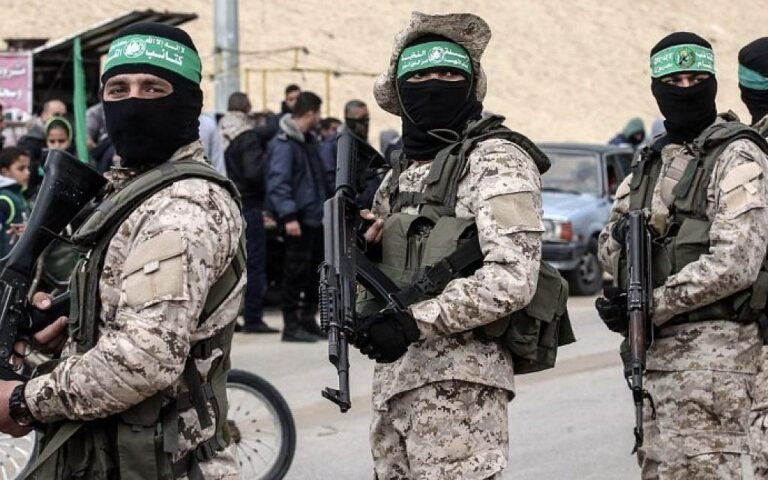shifting Diplomatic Dynamics: The Call for a Palestinian State
In an evolving diplomatic surroundings, the United Kingdom, France, and Canada have united in advocating for the recognition of a sovereign Palestinian state as tensions escalate in the middle East. This groundbreaking initiative underscores changing alliances and intricate geopolitical relationships as these nations strive too tackle persistent conflicts and humanitarian challenges within the region. The proposal seeks to establish a foundation for peace and stability against a backdrop of increasing violence between Israel and various palestinian groups. As global attention sharpens, this stance is poised to impact international relations significantly while contributing to the ongoing search for a sustainable resolution to the Israeli-Palestinian conflict.
UK, France, and Canada Advocate for Palestinian statehood Amid Ongoing Tensions
The recent surge in conflict across the middle East has captured substantial international focus, prompting the UK, france, and Canada to champion formal recognition of Palestine as an independent state. This movement reflects an increasing belief among certain Western countries that acknowledging Palestinian sovereignty is essential for resolving the Israeli-Palestinian dispute. Leaders from these nations contend that such acknowledgment would create vital groundwork for peace talks while potentially alleviating decades-long violence afflicting the area. In their collective statement, they stressed that dialog and collaboration are crucial in addressing humanitarian crises intensified by ongoing hostilities.
However, this position has sparked concerns regarding its implications—especially concerning Hamas’ governance over Gaza. Critics argue that recognizing Palestine at this moment could inadvertently legitimize an organization classified as terrorist by numerous nations worldwide. The current discourse now revolves around achieving a balanced approach, ensuring Israel’s security while also honoring Palestinians’ aspirations. Observers highlight that navigating this complex situation necessitates a multifaceted strategy involving diverse stakeholders committed to peaceful resolutions:
| Nation | Stance on palestinian Sovereignty | Main Concerns |
|---|---|---|
| United Kingdom | Acknowledges support for recognition | Potential legitimization of Hamas |
| France | Pursues dialogue initiatives | Sovereignty risks posed to Israel’s security |
| Canada | Calls for peaceful negotiations | The humanitarian crisis in Gaza remains critical. |
Global Reaction: Examining Potential Impacts of Recognizing Hamas on Regional Stability
The recent push by UK, France, and Canada towards establishing recognition of Hamas governance raises significant questions about its potential effects on regional stability within the Middle East.
Supporters believe acknowledging Hamas-led authority could pave pathways toward constructive peace discussions; however critics warn it might jeopardize existing efforts aimed at achieving two-state solutions by endorsing what many view as a terrorist entity—thereby heightening tensions not only between Israelis and Palestinians but throughout neighboring regions.
This call has ignited discussions surrounding broader geopolitical dynamics involving influential regional players like Iran alongside Gulf states; many express concern over possible escalations into increased militancy or wider conflicts.
Evaluating implications on regional security necessitates reassessing alliances along with strategic approaches taken thus far.
Policymakers across Western capitals alongside adjacent countries now face intricate scenarios capable of reshaping foreign policy frameworks moving forward.
Some anticipated consequences include:
- Evolving proxy confrontations: Neighboring states such as Iran may leverage support towards strengthening military footholds thru backing any newly recognized Hamas state.
- A rise in militant activities: Establishment under Hamas control could embolden other extremist factions leading further escalations into violence.
- Deteriorating Israeli security conditions: With legitimized authority held by Hamas comes heightened threats requiring recalibrated military strategies from Israel’s defense forces.
Future Pathways: Suggestions For Dialogue And Peacebuilding In the Middle East
The persistent strife within this region highlights urgent needs surrounding innovative methodologies aimed at fostering meaningful dialogues along with effective peacebuilding initiatives.
given recent calls from UK ,France ,and Canada advocating legitimacy towards establishing any form associated with governing body led by Hama s—it becomes imperative prioritizingstrategies emphasizing inclusivity coupled mutual understanding among all involved parties .
Engaging civil society representatives—including local leaders women’s organizations youth groups—can open avenues facilitating grassroots conversations addressing nuanced realities present today . Extensive plans should focus upon :
- Create open channels promoting dialogue : Encourage informal exchanges extending beyond political matters encompassing cultural social dimensions too .
- foster educational programs : Invest resources targeting tolerance understanding progress amongst future generations.
- Build coalitions : Form partnerships uniting conflicting entities working collaboratively toward shared objectives including safety economic growth.
Additionally ,global powers must assume constructive roles bringing together not solely governmental figures but also non-state actors factions frequently enough feeling marginalized .This entails recognizing addressing legitimate grievances various stakeholders thereby crafting comprehensive frameworks guiding negotiation processes effectively collaborating international organizations local NGOs enhancing monitoring accountability measures ensuring agreements upheld pursuing sustainable development goals collectively achieved through joint efforts might encompass :
| Main Elements | Pursuable Actions / tr > | ||||
|---|---|---|---|---|---|
Engagement| Facilitate dialogues bridging divides between conflicting parties | / tr > Education | Implement educational programs focused around peace teachings schools | / tr > Community Building | Support grassroots initiatives encouraging intergroup cooperation |
/ tr /> The escalating advocacy emerging from both UK ,France ,and Canada calling forth establishment regarding any form associated with governing body led under Hama s signifies notable shifts occurring within diplomatic narratives surrounding Israeli-Palestinian disputes highlighting complexities inherent geopolitics involved raising inquiries pertaining future prospects related negotiations unfolding amidst high tension environments rapidly evolving circumstances warrant close observation responses forthcoming globally shaping trajectories ahead . |




